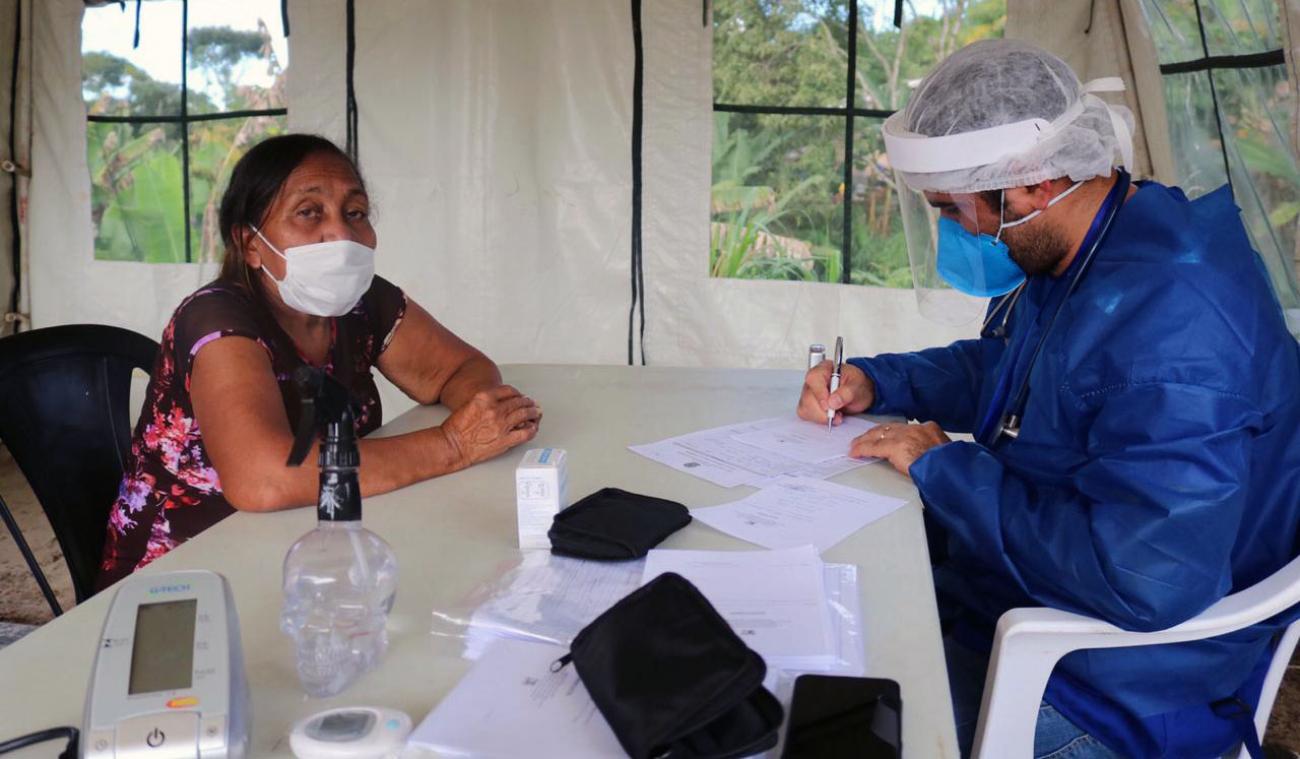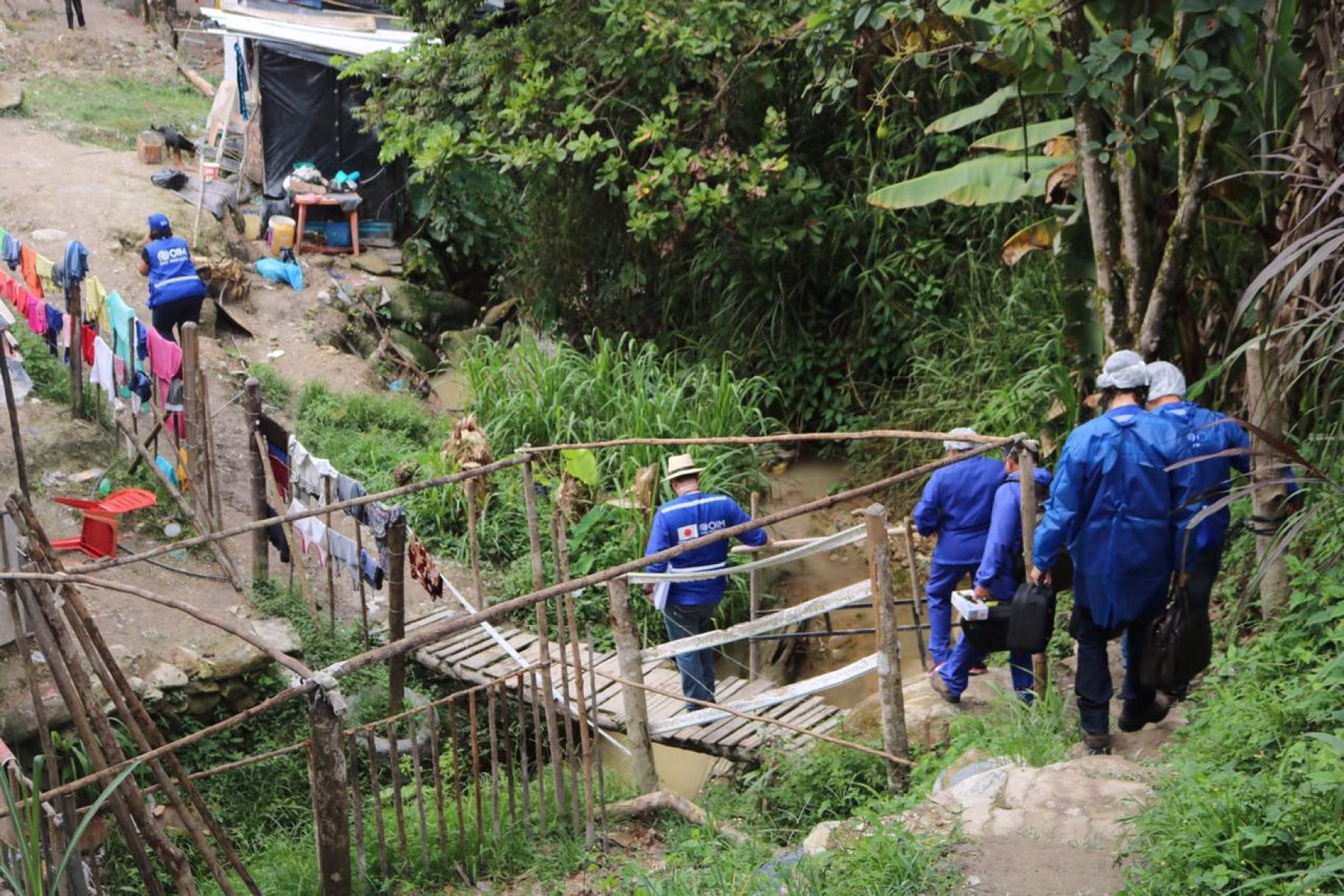Updates from the field #20: Increased support for the most vulnerable

Today, we highlight a few of the coordinated responses to COVID-19 as of 3 August, 2020.
Amazon
Our UN teams in Brazil, Colombia and Peru have issued a joint statement calling for increased support and response efforts in the Amazon region as COVID-19 continues to rage in the area. The pandemic is also impacting hundreds of thousands of indigenous people.
The UN teams warned that the situation of approximately 170,000 people living in remote areas along the Amazon River, on the border between Brazil, Colombia and Peru, is of particular concern. As a result of the pandemic, and despite the efforts deployed by the three governments to respond to the crisis, there are growing fears over the ability of health institutions to cope with the situation and save lives.
The teams are working with national and local authorities to boost support for indigenous populations in the Amazon region. The Pan-American Health Organization (PAHO) is increasing hospital and testing capacity and the UN teams are distributing personal protective equipment and food, as well as disseminating prevention campaigns in indigenous languages.
Despite these efforts, response capacities remain limited in the area. Funding shortages are significantly hampering the crucial life-saving response.
Brazil
In Brazil, where there are now nearly 2.4 million confirmed cases and more than 86,000 deaths due to COVID-19, the UN team, led by Resident Coordinator Niky Fabiancic, is working with national and local authorities to address the immediate health needs and curb other impacts of the pandemic. The team is focusing specifically on addressing these impacts in the Amazon region to protect indigenous peoples and vulnerable communities.
The International Organization for Migration’s (IOM) mobile health units are assisting refugees and migrants. IOM and local partners also delivered 700 hygiene kits, furniture and appliances to poor families, including those coming from Venezuela. The UN team is also supporting e-payments for immediate cash assistance as a cushion to prevent people from falling into poverty.

For its part, the UN Population Fund (UNFPA) is focusing on prevention of unintentional adolescent pregnancies, also working with LGBTQI+ population in the country. For its part, the UN Children’s Fund (UNICEF) worked with 300 girls from vulnerable settings and over 30 public servants to tailor public policies and services seeking to protect and empower girls during the pandemic. UNICEF also delivered more than 7,000 hygiene kits to Afro-Brazilian communities in the North.
Also, IOM, UNICEF, UNFPA and the UN Refugee agency (UNHCR) supported local authorities to relocate nearly 160 Warao indigenous peoples to a new permanent shelter”. Hygiene kits and diapers were also distributed to refugee and migrant families, where there was also an open and informative cinema session for Venezuelans.
UN Women, in partnership with UNHCR and UNICEF, led the communications with Communities COVID-19 Taskforce in developing messages for migrant communities on the reopening of businesses last week in the northern region.
Montenegro
In Montenegro, where more than 3,200 COVID-19 cases have been reported, and more than 50 deaths due to the virus, the UN team is being led by Resident Coordinator, Fiona McCluney.
By re-directing more than $2 million and fundraising more than $5.5 million, the UN is supporting the country's response on several fronts. The UN Development Programme (UNDP) and the UN Office for Project Services (UNOPS) secured medical and protective equipment.
For its part, the World Health Organization (WHO) provided advice to boost clinical and laboratory capacity and UNICEF supported risk communication support.
UNHCR and IOM have also provided services to vulnerable communities.
Focusing on the socioeconomic aspect, the UN team collected data on the impact of COVID-19 on the most vulnerable groups, working closely with national authorities on developing a national socio-economic response plan. UNDP and the International Labour Organization (ILO) also produced reports on the impact of COVID-19 on the business sector, providing recommendations for economic recovery





































